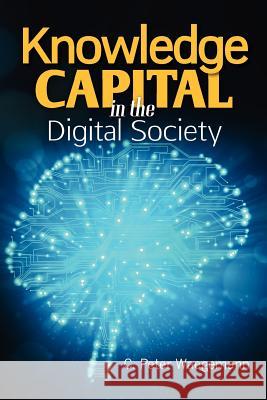Knowledge Capital in the Digital Society » książka
Knowledge Capital in the Digital Society
ISBN-13: 9781468016833 / Angielski / Miękka / 2012 / 214 str.
"Knowledge Capital in the Digital Society" describes how the information society arose, is currently structured, and its possible future directions. The author argues that knowledge is an important part of a person's capital and that information technologies have brought us to the critical point where knowledge is becoming systems-centric instead of brain-centric. He describes how digital technologies are creating a new world information community (WIC) that will impact every facet of our lives. The book analyzes ten areas that are changing our thinking, communication, and decision-making, among them a shift away from memorizing and toward WIC navigation and concept understanding, as well as a move toward transparency and knowledge equality. Taking the example of GPS navigation, i.e., devices that tell people how to find their way, the author predicts that future software will guide us in many other functions of our daily lives, including emotional behavior and decision-making. The challenge of the future is a new intelligence that emphasizes concept understanding, creativity, and identifying accurate information, rather than memorizing data. The emerging value of transparency in the digital society will require companies, governments, and other organizations to establish new policies and practices for the management of their knowledge capital. On an individual basis, knowledge capital management includes our anticipating risks and opportunities that we can best meet with what the author calls "digital hygiene." The book cites examples from the banking and healthcare industries to describe the possibilities that digital technologies offer. The effects of WIC can also be seen in new virtual communities that go beyond borders. Economic disruptive effects are discussed as well as the potential for better living conditions globally. An era of enlightenment could open new avenues to reduce violence, increase well-being, create technology-enabled democracies, and introduce fact-checking to combat information distortion. While there are many books about computers and the internet, "Knowledge Capital in the Digital Society" is unique in that it comprehensively addresses how we got here and what the challenges and options of the digital future are. The book will appeal to those interested in information technologies, intelligence, the philosophical meaning of life, the role of information in our lives, and the opportunities for thriving in the digital society of the future.
Zawartość książki może nie spełniać oczekiwań – reklamacje nie obejmują treści, która mogła nie być redakcyjnie ani merytorycznie opracowana.











